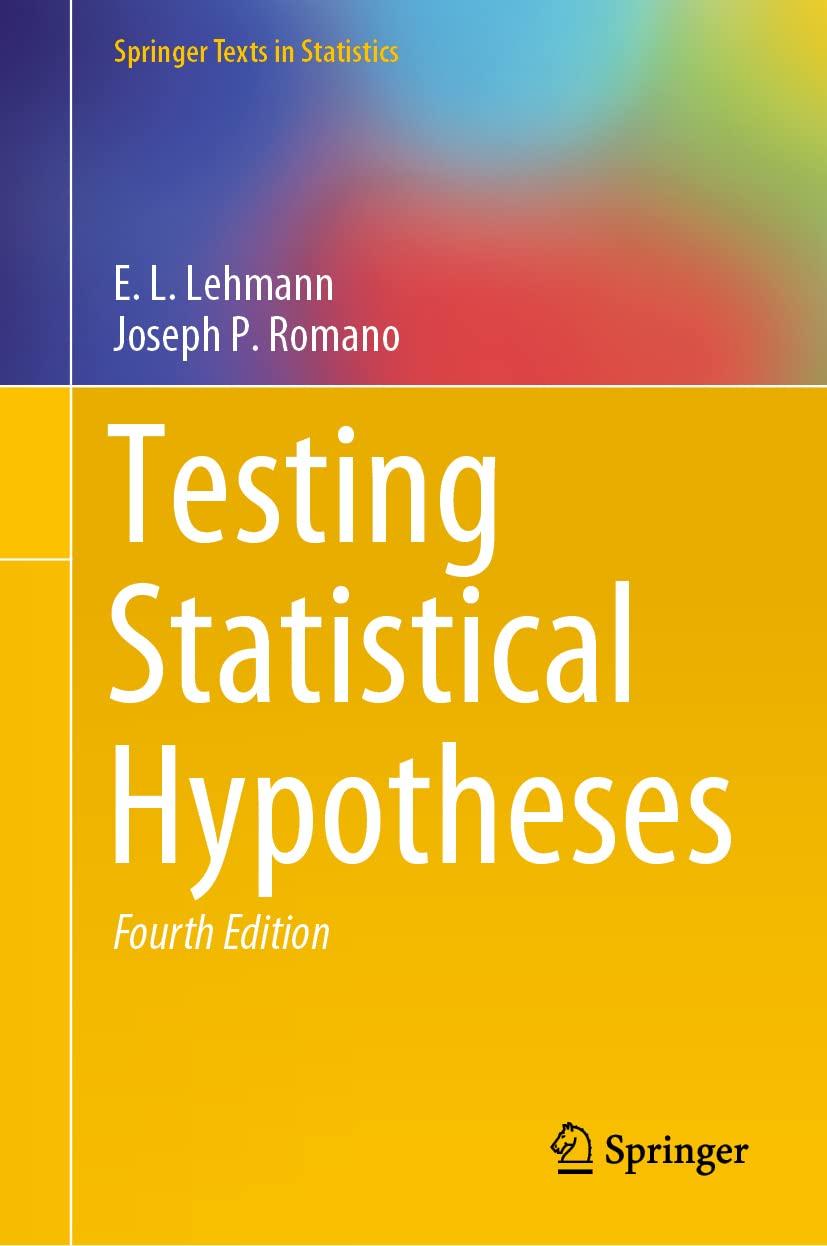Let X1,..., Xn be i.i.d. P. Consider estimating (P) defined by (P) = E[h(X1,..., Xb)] , where
Question:
Let X1,..., Xn be i.i.d. P. Consider estimating θ(P) defined by
θ(P) = E[h(X1,..., Xb)] , where h is a symmetric kernel. Assume P is such that E[h2(X1,..., Xb)] < ∞, so that θ(P) is also well-defined. Let Un be the corresponding U-statistic defined by
(12.24). Let Pˆ
n be the empirical measure, and also consider the estimator
θ(Pˆ
n) = 1 nb n
i1=1
···n ib=1 h(Xi1 ,..., Xib ) .
Do √n[Un − θ(P)] and √n[θ(Pˆ
n) − θ(P)] converge to the same limiting distribution? If further conditions are needed, state them. Find the limiting behavior of n[Un − θ(Pˆ
n)]. Again, state any conditions you might need.
Fantastic news! We've Found the answer you've been seeking!
Step by Step Answer:
Related Book For 

Testing Statistical Hypotheses Volume I
ISBN: 9783030705770
4th Edition
Authors: E.L. Lehmann, Joseph P. Romano
Question Posted:






